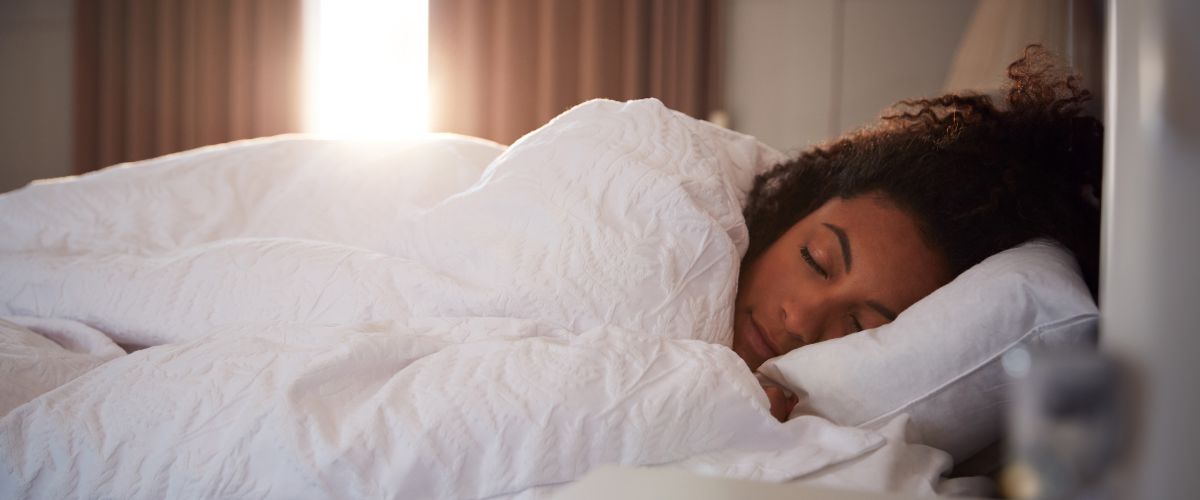10 simple brain hacks for better health
For wellness, better mental health and healthy ageing, try these easy, budget-friendly neuroscience-based hacks for your mind and body

If your goal is to be healthier but you don’t have the time or space for a complete lifestyle overhaul, health hacks may be the ideal solution.
Many of them backed by neuroscience, these easy techniques are designed to help our bodies function better to help avoid illness and slow ageing with very little effort.
Here are some easy health hacks to help ensure you reach the right balance and get your body’s natural systems functioning more optimally.
Take a cold shower
Turn your morning shower to cold at the end. “Your breath will immediately start to become fast and shallow as your body senses change and the ‘fight or flight’ mode is activated,” says neuroscientist and author Dr Julia Jones.
“Keep your breathing slow with extended exhales to stay relaxed and train the autonomic nervous system – the bodily function that regulates our heart rate and blood pressure – to stay in ‘rest and repair’ mode.”
Try intermittent fasting
There are lots of ways of introducing fasting into your routine, but one of the easiest is to eat breakfast 16 hours after yesterday’s dinner, aka 16/8 fasting.
“We’re eating too often – ancient humans didn’t have food at their fingertips and regularly used to go into a ‘fasting state’
Dr Julia Jones, neuroscientist
“When our cells are not busy metabolising food, they can remove waste products and do other important housekeeping tasks. This is important as the build-up of waste products accelerates biological ageing and drives chronic inflammation.”
Studies show this kind of fasting can have numerous benefits, including improved blood sugar control and longevity. To do it, stop eating three hours before you go to bed and delay your breakfast about four times a week.
Set your internal clock
Getting outside during early morning is important to set our circadian rhythm, which follows a 24-hour cycle and is regulated by natural daylight. “Levels of blue light are high in the morning and in the afternoon it’s more red,” explains Jones.
“The optic nerve in your eyes tells your brain the colour of the light, proteins that build up at night lessen and activate feelings of wakefulness, and the hormone melatonin kicks in at the end of the day to make you sleepy.”
The artificial blue light of screens disrupts our circadian rhythm. In the evening, Jones recommends wearing blue-light blocking glasses and, instead of turning on bright overhead lights that imitate the sun, using candles or low lamps below eye level.
Eat 30 types of plants
Diversity in our gut microbiome is crucial for our immune system and helps control inflammation. “The typical western lifestyle has crucified our gut bacteria with processed food and little seasonal variation,” explains Jones. “Different gut bacteria feed off different prebiotic fibre, so variety is key.
Aim to eat at least 30 types of plants a week.” All plant foods count, including fruit, vegetables, nuts, seeds, wholegrains, pulses and even herbs and spices. In addition, taking a probiotic every day, such as live yoghurt, kefir, fermented sauerkraut, kombucha drinks or miso, helps boost gut bacteria.
“A combination of prebiotics and probiotics help your gut bacteria survive and thrive,” she adds.
Why not try this family-friendly Tofu burrito bowl to pack more plants into your diet.
Prioritise social time
Humans are not designed to be isolated. Research has found that loneliness is worse for your health than obesity or smoking 15 cigarettes a day, and is likely to increase your risk of depression, dementia, heart disease, stroke and inflammation, not to mention mortality.
“We are pack animals,” says Jones. “Bonding chemicals in our brains – oxytocin and dopamine – are feel-good chemicals activated when we’re with people that make us feel safe and are crucial for our mental and physical health.”
Make sure you carve out social time for family, friends and leisure pursuits, especially if you’re working from home. “We’re often so busy we neglect this, but it needs to be a priority,” adds Jones.
Keep learning
Complex tasks like learning a language or musical instrument are the most efficient and effective ways of building brain connections as an adult. “Building new brain connections is important to protect the brain against future degeneration, including dementia,” says Jones.
There is also some evidence to suggest that the more people over 50 engage in games such as sudoku and crosswords, the better their brain’s function.
Listen to calm music
Listening to calm music with dim lights in the evening tells the brain it’s safe. It can be an exceptional tool to promote sleep and studies have shown that it also reduces pain, anxiety and depression.
“Calm music can be a super metronome for breath work,” says Jones. “Doing deep breathing to a slow song you love can regulate breathing and shut off stress chemicals.”
Music, the mind and our health | Magazine | Vitality
Feel gratitude
Research shows that thinking about the positive things in your life releases feel-good chemicals in the brain and makes you feel happier. It can also help reset our brain to be more resilient.
“Gratitude helps us focus on what we’ve got right and what we’re lucky to have, which can be easy to forget living in a whirlwind of busyness,” says Jones.
“Take five minutes before bedtime to pay attention to the successes and pleasures of the day – it could be as simple as being thankful for a delicious cup of coffee you’ve drunk.”

Sleep better
During sleep, your body undertakes restorative work along with the consolidation of memory and emotion. “Use a tracker to measure whether you’re getting enough good quality sleep,” says Jones.
“To improve your sleep, try not to stimulate your brain and autonomic nervous system during the evening, as this could trigger the ‘fight or flight’ reflex.”
Dimming lights, reducing screen time, listening to relaxing sounds and keeping warm all help your body to know it’s safe so it can concentrate on regeneration.
The fundamentals of sleep | Magazine | Vitality
Be kind
Kindness has real benefits for our mental health and wellbeing. A study by the Mental Health Foundation found that 63% of UK adults agreed that being kind to others has a positive impact on their mental health and vice versa.
“Kindness produces a feeling that some psychologists call ‘elevation’,” says Dr David Hamilton, author of The five side effects of kindness.
“When we feel elevated from the experience of kindness, we’re more likely to pay it forward and be kind to other people. Research shows that elevation is the source of the ripple effect of kindness and is contagious to the three degrees of separation.”
This means if you’re kind to someone that person will then be kind to others (1 degree), and those others will then be kind to others (2 degrees) and those others will be kind to even more people (3 degrees). Indeed, research has found that being kind is linked to increased feelings of happiness, wellbeing and life satisfaction[1].
It helps reduce stress, loneliness and self-criticism, boosts our self-esteem and deepens friendships[2].
[1] Happy to help? A systematic review and meta-analysis of the effects of performing acts of kindness on the wellbeing of the actor https://psycnet.apa.org/record/2018-12418-001
[2] Volunteering predicts health among those who value others https://pubmed.ncbi.nlm.nih.gov/23566179/
Related: Music, the mind and our health
Recent articles

Get the Zs you deserve: 6 common sleeping myths put to bed
Could falling for a common sleep myth be where we’re going wrong? This World Sleep Day, we’re setting the record straight so that you get the best from the land of nod

Your chemotherapy support pack: Combatting the side effects
When Vitality member Nicky was going through chemotherapy for breast cancer, she was grateful for pineapple chunks and acupuncture. Here, she shares her tips for combatting the side effects of chemo

What’s increasing your risk of cancer?
Getting cancer isn’t always down to our genes or simply bad luck, unhealthy lifestyle choices can also play a part. Journalist Sally Shore discovers some everyday factors that increase our risk and how to combat them


